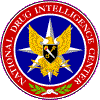
|
National
Drug Intelligence Center Arizona High Intensity Drug Trafficking Area Drug Market Analysis May 2007 Illicit FinanceMexican DTOs are the principal money launderers in the Arizona HIDTA region. They exploit the area because of the large number of stash houses in which drug proceeds can easily be consolidated for bulk shipment and the proximity of the area to the Arizona-Mexico border. In addition, the large number of Mexican transporters operating in the area helps traffickers move bulk drug proceeds into Mexico and South America. However, Caucasian and Jamaican independent dealers as well as street gangs, OMGs, and prison gangs also launder illicit proceeds in and from the area, but to a lesser extent than Mexican DTOs. According to DEA, both the number of bulk currency seizures and the number of stash locations where drug proceeds were seized in Arizona increased dramatically between 2005 and 2006. As of the third quarter of fiscal year (FY) 2006, DEA reported a 128 percent increase in the number of bulk currency seizures (121 bulk currency seizures totaling $10,294,191 compared with 53 such seizures totaling $8,679,563 during the same period in 2005). During those same periods, DEA also reported an 850 percent increase in the number of bulk currency seizures at stash houses (38 events totaling $4,169,479 compared with 4 events totaling $301,160). Most of these seizures involved currency that was smuggled in bulk from Phoenix and Tucson using commercial airlines and private vehicles. Traffickers have also decreased the total amount of illicit drug proceeds smuggled at one time in order to reduce their losses in the event of an interdiction. Once traffickers smuggle illicit proceeds into Mexico, they often deposit the funds in Mexican financial institutions, including casas de cambio (exchange houses) and banks for eventual transport back to the United States through electronic wire transfers or physical transport. In addition, traffickers in the HIDTA region also regularly structure bank deposits and money order purchases to avoid reporting requirements, or they launder illicit proceeds through retail stores, real estate companies, and restaurants and by purchasing assets such as property, vehicles, jewelry, or recreational vehicles. Drug traffickers throughout the United States often wire-transfer illicit drug proceeds to Phoenix and Tucson for consolidation and eventual bulk transport to Mexico. However, this practice is occurring less frequently than in prior years. The Arizona Attorney General's Office reports that effective law enforcement efforts in the state have forced drug traffickers to reroute their wire transfers. Most of these traffickers now avoid Arizona and transfer their drug proceeds by wire to other U.S. destinations or directly to Mexico. |